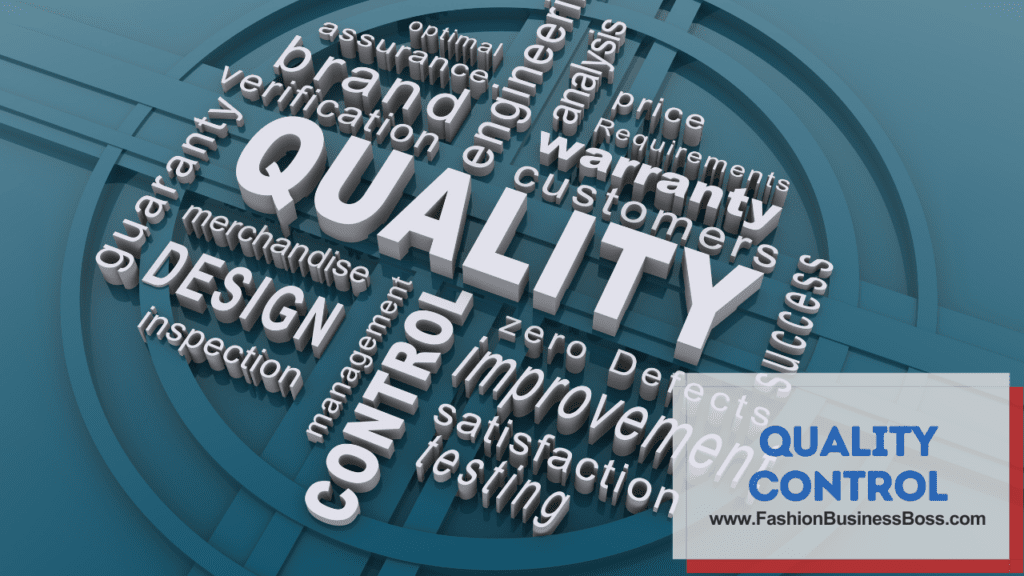Embarking on your own clothing brand is an exciting journey. Creating a fashion line requires a combination of passion, creativity, and a strategic approach.
To excel in your clothing brand journey, prioritize quality, sustainability, inventory management, customer service, collaborations, seasonal collections, data analytics, loyalty programs, social responsibility, and staying informed.
In this article, we’ll explore the best way to turn your fashion dreams into a thriving reality.
Quality Control

Maintaining consistent quality in your clothing brand is of utmost importance. To achieve this, it’s crucial to establish stringent quality control measures throughout the production process. These measures are in place to guarantee that every piece of clothing aligns with your brand’s defined standards.
Quality control involves a careful inspection of materials, workmanship, and final products. It ensures that the garments are free from defects and meet the set criteria for design, durability, and appearance. By adhering to these standards, you send a clear message to your customers that they can rely on your brand for dependable and well-crafted clothing.
This commitment to quality not only reassures your customers but also fosters trust and loyalty. When people consistently receive products that meet or exceed their expectations, they are more likely to return as repeat customers. This, in turn, can lead to positive word-of-mouth recommendations and customer retention, which are vital for the long-term growth of your clothing brand.
Read more about: Crafting Your Dream: How to Begin a Clothing Business?
Sustainable Practices
Integrating sustainable practices into your clothing brand’s core values is a wise decision in today’s world. Many consumers now place great importance on brands that take environmental concerns seriously. To meet this demand and make a positive impact, consider adopting sustainable approaches in various aspects of your brand.
One key aspect is the use of sustainable materials. Opt for fabrics and materials that have a lower environmental footprint, such as organic cotton or recycled fibers. These choices reduce the strain on natural resources and minimize pollution.
Furthermore, ethical manufacturing processes ensure that your clothing is produced in a responsible and fair manner. This means treating workers fairly, providing safe working conditions, and avoiding exploitative practices. Not only does this align with consumer values, but it also contributes to a better global community.
Eco-friendly packaging is another sustainable practice to consider. Minimize waste by using recyclable or biodegradable materials for your clothing packaging.
Inventory Management
Efficiently managing your inventory is a fundamental aspect of running a clothing brand. It’s essential for ensuring you have the right amount of clothing in stock, neither too much nor too little.
Overstocking can lead to financial strain, as it ties up your capital in unsold inventory and may result in items becoming outdated or out of season. On the other hand, running out of popular items can lead to missed sales opportunities and disappointed customers.
To tackle this challenge, consider using inventory management software. This tool helps you keep a close eye on your stock levels, making it easier to know when it’s time to reorder items. It can also assist in forecasting demand, which is particularly helpful in the fashion industry where trends can change rapidly.
By effectively managing your inventory, you can strike a balance that ensures you have the right products available to meet customer demand while avoiding unnecessary costs and waste. This approach can streamline your operations, improve cash flow, and contribute to the overall efficiency and stability of your clothing brand.
Customer Service

Distinguishing your clothing brand from others can be achieved through exceptional customer service. It involves training your staff to deliver outstanding assistance to customers, which can significantly impact your brand’s reputation.
Promptly addressing customer inquiries is a crucial component of exceptional service. When customers have questions or concerns, it’s essential to respond swiftly and efficiently. This demonstrates your commitment to their needs and enhances their overall experience with your brand.
Handling returns and exchanges professionally is another aspect of exceptional customer service. Establish clear and fair return policies, ensuring customers have a hassle-free process when they need to return or exchange a product. This not only builds trust but also increases the likelihood of repeat business.
By prioritizing exceptional customer service, your brand can foster positive relationships with customers, leading to increased customer satisfaction and loyalty. Satisfied customers are more likely to recommend your brand to others, contributing to long-term brand growth and a positive reputation in the competitive world of fashion.
Read more about: Crafting Your Dream: Step-by-Step Guide to Launching a Clothing Brand
Collaborations
Exploring collaborations is a strategic move for your clothing brand. It involves partnering with other brands, designers, or artists to create special collections or limited-edition pieces. This collaborative approach has the potential to extend your brand’s influence and introduce it to fresh audiences.
By joining forces with another brand, you can tap into their existing customer base and gain exposure to a different set of consumers. This can be particularly advantageous if the collaborating brand has a well-established reputation or a distinct creative style that complements your own.
The unique collections or limited-edition pieces that result from collaborations often generate buzz and excitement among customers. They become coveted items, creating a sense of urgency and desirability that can drive sales and brand recognition.
Furthermore, collaborations can be a mutually beneficial endeavor, allowing both parties to share resources, creative ideas, and marketing efforts. This cooperative approach can foster creativity, expand your brand’s reach, and open doors to new opportunities in the competitive fashion industry.
Seasonal Collections
Strategically planning your clothing collections according to the fashion industry’s seasonal calendar is a smart approach. This involves creating a range of clothing styles tailored to specific seasons, ensuring you meet the diverse needs of your customer base.
By aligning your collections with seasons, you acknowledge that clothing preferences change with weather and occasions. For instance, customers seek warmer fabrics in the winter and lighter materials for summer. Planning accordingly allows you to cater to these preferences.
Offering a variety of styles suitable for different seasons broadens your customer appeal. It accommodates those seeking both seasonal trends and timeless classics. Moreover, it encourages repeat business, as customers may return to your brand for their seasonal wardrobe needs.
Planning ahead is key in this process. It allows you to design, manufacture, and market your collections in a timely manner, staying ahead of fashion trends and ensuring your offerings are available when customers are actively seeking them. This strategic approach enhances your brand’s competitiveness in the fashion market.
Data Analytics

Harnessing the power of data analytics is a wise move for your clothing brand. It involves using specialized tools to collect and analyze data related to customer behavior, sales patterns, and the impact of your marketing initiatives. By doing so, you can gain valuable insights that inform your decision-making and enhance the efficiency of your strategies.
Data analytics enables you to understand your customers better. It reveals their preferences, buying habits, and what products resonate most with them. Armed with this knowledge, you can tailor your clothing designs and marketing campaigns to better meet their needs.
Furthermore, analyzing sales trends helps you identify which items are performing well and which may need adjustments. This data-driven approach ensures you invest your resources wisely and maximize stability.
Effective marketing is also facilitated by data analytics. It allows you to assess the impact of your marketing efforts, helping you allocate resources to strategies that yield the best results.
Read more about: Crafting Your Fashion Identity: How to Get Your Own Clothes Made?
Customer Loyalty Programs
Introducing customer loyalty programs or reward systems into your clothing brand can be a beneficial move. These programs are designed to motivate customers to make repeat purchases and refer others to your brand. The goal is to establish and nurture a loyal customer base over time.
Loyalty programs typically offer rewards, discounts, or special perks to customers who consistently choose your brand. These incentives create an appealing reason for customers to return for more purchases, as they see value in their ongoing loyalty.
Moreover, when satisfied customers refer friends, family, or acquaintances to your brand, it expands your customer base organically. Word-of-mouth recommendations from loyal customers hold significant influence and can help grow your brand’s reach.
Customer loyalty programs not only encourage repeat business but also cultivate a sense of belonging and appreciation among your customers. They feel recognized and valued for their loyalty, which strengthens their connection to your brand.
Social Responsibility
Embracing social responsibility within your clothing brand involves taking actions that contribute to the greater good of society. This means supporting charitable causes or initiatives that resonate with your brand’s core values and beliefs.
By aligning your brand with social causes, you can build a positive and compassionate image. When consumers see your brand actively participating in philanthropic efforts, it fosters a sense of trust and goodwill. People often prefer to support businesses that demonstrate a commitment to making the world a better place.
Furthermore, engaging in social responsibility initiatives allows your brand to connect with socially conscious consumers. These individuals actively seek out brands that share their values and prioritize ethical practices. By doing so, you create a connection that goes beyond the transactional aspect of business.
Stay Informed

Staying informed is crucial in the ever-changing world of the fashion industry. This means keeping yourself updated on the latest developments, including emerging trends, new technologies, and shifts in consumer preferences.
Fashion is a dynamic field, and being aware of current and future trends is essential. By staying informed, you can anticipate what styles and designs will be in demand, allowing you to adapt your brand’s offerings accordingly.
Attending trade shows is a valuable way to gain insights into the industry. These events showcase the latest innovations, materials, and fashion trends. It’s an opportunity to connect with suppliers, designers, and potential collaborators.
Reading industry publications provides a wealth of information on market trends and industry news. These publications offer in-depth analysis and expert opinions that can guide your business decisions.
Networking with fellow fashion professionals is another valuable aspect of staying informed. Building relationships within the industry can lead to valuable partnerships, collaborations, and shared insights.
Read more about: Crafting Your Future: How to Open a Retail Clothing Store?
Conclusion
With these points, you’re well-equipped to embark on your journey to start your own clothing brand. Building an effective brand takes time, dedication, and adaptability. Stay true to your vision, remain open to feedback, and continue to innovate as you make your mark in the fashion industry.
Frequently Asked Questions

Q: What is the importance of quality control in a clothing brand?
A: Quality control is crucial as it ensures that every garment meets brand standards, building trust and loyalty among customers.
Q: How can sustainable practices benefit a clothing brand?
A: Sustainable practices align with eco-conscious consumer preferences, promoting brand reputation. They involve using eco-friendly materials, ethical manufacturing, and eco-conscious packaging.
Q: Why is efficient inventory management vital for a clothing brand?
A: Efficient inventory management prevents overstocking or shortages, optimizing operations. Utilizing inventory management software helps track stock levels and reordering when necessary.
Q: What role does customer service play in differentiating a clothing brand?
A: Exceptional customer service sets a brand apart, fostering positive customer experiences. It involves prompt inquiry handling and professional management of returns and exchanges.
Q: How can collaborations benefit a clothing brand’s growth?
A: Collaborations with other brands, designers, or artists can expand a brand’s reach and introduce it to new audiences, fostering brand growth and recognition.
To learn more about starting your own clothing business, check out my startup documents here.
Please note that the contents of this blog are for informational and entertainment purposes only and should not be construed as legal advice. Any action taken based on the information provided in this blog is solely at your own risk. Additionally, all images used in this blog are generated under the CC0 license of Creative Commons, which means they are free to use for any purpose without attribution.

Meet Shawn Chun: Entrepreneur and Fashion Business Fan.
I’m a happy individual who happens to be an entrepreneur. I have owned several types of businesses in my life from a coffee shop to an import and export business to an online review business plus a few more and now I create online resources for those interested in starting new ventures. It’s demanding work but I love it. I do it for those passionate about their business and their goals. That’s why when I meet a designer or boutique owner at a craft fair, farmers market, retail location or anywhere else I see myself. I know how hard the struggle is to retain clients, find good employees and keep the business growing all while trying to stay competitive.
That’s why I created Fashion Business Boss: I want to help fashion business owners like you build a thriving business that brings you endless joy and supports your ideal lifestyle.

